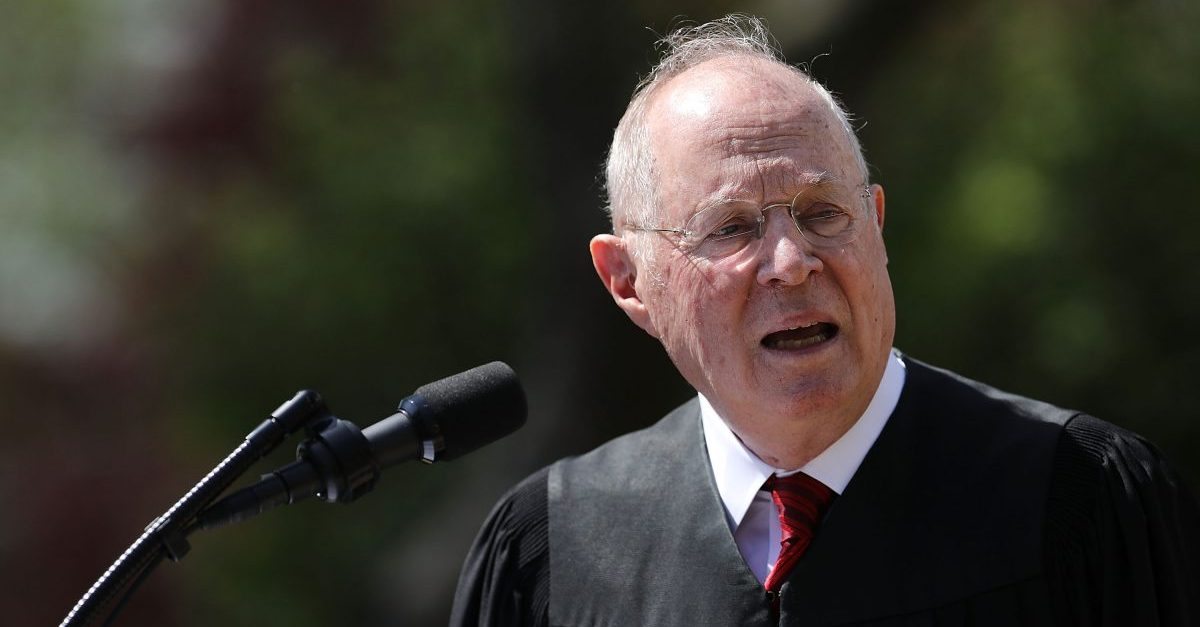
One attorney had a few ideas as to the “why now” of Supreme Court Justice Anthony Kennedy‘s retirement. Though some responding to the announcement decided to go with a less nuanced response to setting up President Donald Trump with a second opportunity to nominate the next SCOTUS judge, could it really be that Kennedy retiring now is actually his favor to post-Trump America?
Ted Frank, Director of Litigation and Senior Attorney at non-profit public policy organization Competitive Enterprise Institute, began a Twitter thread Friday by arguing that the “irrational” Democratic response to Trump’s nomination of Neil Gorsuch to the Supreme Court and the “hostility” of the four liberal members of the Supreme Court (Kagan, Sotomayor, Ginsburg, Breyer) to the First Amendment persuaded him that the time to retire was either now or 2021.
“The degree of hostility the 4 liberal members of the Court repeatedly displayed for First Am. protections in the last few terms persuaded Kennedy he didn’t want to wait until 2021,” he said, adding that gay rights and abortion rights are “safer” right now in the wake of a Kennedy retirement than the First Amendment would be in 2021.
He noted the irony that would be there if the #Resistance response to a “civically ignorant” President Trump really did scare Kennedy into retiring now. Kennedy is known for being a wild card, after all.
Frank speculated that Kennedy probably knows Gorsuch well, likes him and maybe even holds similar positions, meaning Kennedy probably found it repugnant Gorsuch was “smeared” and barely confirmed to his office.
“Kennedy knows well and (probably?) likes Gorsuch and Stephanos Bibas. To see them smeared for positions not that much different than his own, filibustered, and then barely win (54-45, 53-43) confirmation had to be offensive to him,” he said.
Perhaps most persuasive argument of all that Kennedy’s decision to retire now might was motivated by fears about free speech was Frank’s point about NIFLA v. Becerra opinion. Indeed, Kennedy slammed California for not being as “forward thinking” as it believes on the free speech issue.
NIFLA v. Becerra involved three religiously-affiliated organizations that provide services for pregnant women, in their fight against a California law that required them to provide notice to patients about the availability of publicly funded options, including abortion.
Kennedy notably called out California, saying, “the State requires primarily pro-life pregnancy centers to promote the State’s own preferred message advertising abortions,” which ” compels individuals to contradict their most deeply held beliefs.”
“[I]t is not forward thinking to force individuals to be an instrument for fostering public adherence to an ideological point of view [they] fin[d] unacceptable,” he added. “It is forward thinking to begin by reading the First Amendment as ratified in 1791.”
“Governments must not be allowed to force persons to express a message contrary to their deepest convictions,” Kennedy concluded. “Freedom of speech secures freedom of thought and belief.”
It’s likely no accident that his strong words in NIFLA v. Becerra were among Kennedy’s last as an active Supreme Court justice. If Frank’s theory is correct, Kennedy may be the “forward thinking” one regarding his retirement.
Editor’s note: this story was updated after publication with additional information.
Ronn Blitzer contributed to this report.
[Image via Somodevilla/Getty Images]